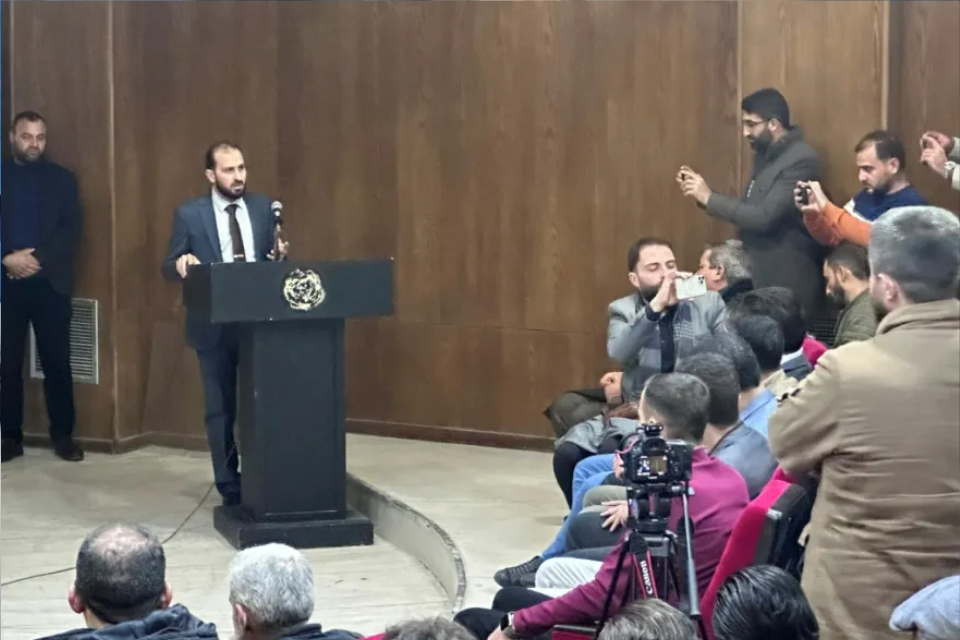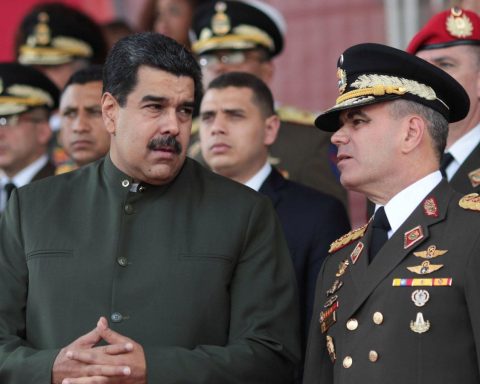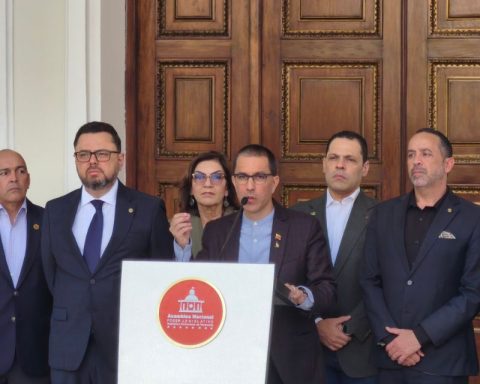«There were severe restrictions on freedom of the press and expression under the regime, which practiced censorship. In the next phase, we will work to rebuild a free, objective and professional Syrian media field,” said Minister Mohamed al Omar.
The Minister of Information of the new Syrian authorities, Mohamed al Omar, told AFP that he works for a “free” press and pledged to guarantee “freedom of expression” in a country where the press was muzzled by the previous government. .
In a Syria marked by more than 13 years of devastating civil war, the minister sought to reassure journalists who worked under the yoke of the deposed Bashar al-Assad but refused to be “instruments of propaganda,” and promised that they would be “called back.” to their positions.”
«There were severe restrictions on freedom of the press and expression under the regime, which practiced censorship. In the next phase, we will work to rebuild a free, objective and professional Syrian media field,” Omar stated.
The transitional government was installed by the coalition of rebel groups led by the Islamist movement Hayat Tahrir al Sham (HTS) who deposed Assad’s government on December 8, ending more than half a century of rule by his family clan.
A few hours after the alliance took Damascus, state media, extolling Assad’s glory, condemned his “criminal regime,” posting on social media the three-star flag that symbolizes the 2011 popular uprising against his government.
“We are working to consolidate freedoms of the press and expression that were severely restricted in the regions of the deposed regime,” said Omar, who was Minister of Information in the self-proclaimed “salvation government” installed by HTS in the former rebel stronghold of Idlib. (northwest).
When pro-democracy demonstrations broke out in 2011, the movement was put down with blood and the rebels who took up arms were labeled by the authorities as “terrorists.”
“We do not want to continue in the same way, that is, with an official press whose objective is to polish the image of power,” said Omar.
The new authorities have made numerous gestures and statements to reassure the minorities of the multi-ethnic and multi-confessional country, as well as the Western and Arab diplomatic delegations in Damascus.
*Read also: IAPA warns of deterioration in press freedom in the region, especially in Peru and Venezuela
Omar also stated that he wanted to “reduce bureaucracy and facilitate the work of the foreign press.” Under the previous government, the foreign press was scrutinized and its journalists had difficulty obtaining visas. “Since the liberation (…) especially in Damascus, we have asked that the work of the media continue in the institutions” once controlled by the previous regime.
On December 13, the Ministry of Information published a statement in which it announced the intention of the new authorities to punish “all journalists who were part of the war and propaganda machine of the deposed regime and who contributed directly or indirectly to promote their crimes.
On Tuesday, the minister spoke to dozens of Syrian journalists to discuss the transition. “We want media that reflects Syrian cultures in their diversity, reflecting their ambitions, transmitting their concerns and serving as a link between the people and the government,” he added in the interview with AFP.
*Journalism in Venezuela is carried out in a hostile environment for the press with dozens of legal instruments in place to punish the word, especially the laws “against hate”, “against fascism” and “against the blockade.” This content was written taking into consideration the threats and limits that, consequently, have been imposed on the dissemination of information from within the country.
Post Views: 471















